What is the Kitchen Triangle Rule?
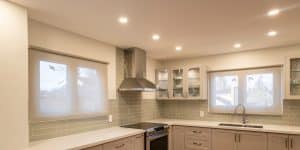 The kitchen triangle rule is a strategic design concept that positions the sink, refrigerator, and stove as the three main points of a work triangle to maximize efficiency and safety. According to Berico certified Electrician, Toni Mortera, “While the kitchen triangle is fundamentally a workflow concept, modern electrical planning uses this layout as a primary safety blueprint. Spacing out these three points is a strategic way to distribute high-amperage appliances across different circuits, ensuring the home’s electrical panel remains balanced and isn’t overwhelmed during peak meal preparation.”
The kitchen triangle rule is a strategic design concept that positions the sink, refrigerator, and stove as the three main points of a work triangle to maximize efficiency and safety. According to Berico certified Electrician, Toni Mortera, “While the kitchen triangle is fundamentally a workflow concept, modern electrical planning uses this layout as a primary safety blueprint. Spacing out these three points is a strategic way to distribute high-amperage appliances across different circuits, ensuring the home’s electrical panel remains balanced and isn’t overwhelmed during peak meal preparation.”
Understanding the Kitchen Triangle Rule
The concept of the kitchen triangle is actually quite simple, but it is extremely helpful when trying to design a kitchen, whether for a new home or as part of a remodeling project. The core of this idea is that the sink, stove, and refrigerator should be in a triangular layout to avoid unnecessary or extra movement while cooking. If these three key components are in close proximity and don’t have any obstacles between them, using the kitchen will be a more enjoyable experience. You notice the kitchen triangle mostly when it goes wrong, as spaces that don’t follow this basic advice tend to be frustrating to use and meals take longer to prepare. There is nothing more to the triangle rule than making sure the sink, stove, and refrigerator are connected in a logical manner. As long as those three elements work together nicely, the rest of the kitchen design can fall into place from there.
Electrical Load Management within the Triangle
From a technical perspective, each point of the triangle represents a significant power demand. The refrigerator requires a dedicated circuit to ensure consistent cooling without the risk of a shared-line trip, while the stove, specifically modern induction or electric ranges, requires a high-voltage, high-amperage connection. A Berico certified Electrician ensures that, as the triangle is planned, the wiring is properly rated for these specific loads. Professional placement allows for the safe routing of heavy-duty electrical lines behind cabinetry and walls, preventing heat buildup and potential hazards.
Lighting and Outlet Placement for a Functional Workspace
A successful kitchen triangle also relies on specialized electrical planning for lighting and “small appliance” zones. To keep the triangle efficient, professional installers recommend under-cabinet task lighting between the points of the triangle to eliminate shadows while prepping food. Furthermore, the National Electrical Code (NEC) requires GFCI-protected outlets along the countertops within the triangle area. This allows for the safe use of blenders or mixers near the sink without stretching cords across walking paths, maintaining the integrity of the work zone.
Dedicated Circuits for Modern Appliance Integration
When homeowners upgrade kitchens to follow the triangle rule, major appliances are often moved to new locations. This serves as an ideal time to evaluate the home’s electrical panel. Beyond the stove and fridge, a modern kitchen frequently requires a suite of dedicated circuits for the dishwasher, built-in microwave, or wine cooler. The Berico team ensures the electrical infrastructure supports these new “points” of the triangle, preventing flickering lights or frequent trips to the breaker box when multiple appliances are in use simultaneously.
What Benefits Come from Obeying the Kitchen Triangle Rule?
You’ll immediately notice how enjoyable it is to cook in a kitchen that follows this design strategy. First and foremost, wasted steps are reduced. When you need to go from the stove over to the sink, and then back to the fridge to get another ingredient, you won’t be walking all around the kitchen. Those steps might not seem like a big deal at the moment, but when you limit how many of them you have to take, the overall effect at the end of the day is significant. The triangle design can also limit traffic conflicts when multiple people are working in the kitchen at the same time. For example, imagine that you are cooking at the stove while another person is preparing food on the counter. You’ll be staying in the triangle, moving back and forth between the three key components of the kitchen, as necessary. The other person will be at their own station, getting things done without getting in your way.
How Close Together Do These Elements Need to Be?
There is no strict rule about the spacing of the three components of the kitchen triangle, but there are some general guidelines that you’ll want to keep in mind. As a general rule of thumb, the sides of the triangle should be between four and nine feet in length. The total distance of the three sides of the triangle added up should be between 13 and 26 feet. You should not have any major obstacles, like a counter or island, located along the line between the three points. Spacing things out nicely in the distance range listed above will give you the best results.
The Kitchen Triangle Rule Still Applies
In modern kitchens, open concept designs are the rule of the day. While it can be hard to strictly follow this rule given the way kitchens are now designed, it’s still a good guideline to keep in mind. With that said, you might not be able to follow the rule to the letter when designing an open kitchen, and that’s okay. Some modern kitchens have two sinks, for example, so you have to decide which one to consider for the triangle rule. Don’t let the details of the rule get you bogged down during the design phase, but keep it in the back of your mind as a way to make sure the finished product is as functional as possible.
What About Kitchen Islands?
An island is a great feature to gain prep space and direct the flow of foot traffic around the kitchen. Kitchen islands can also provide counter seating, but the seating should be kept on the opposite side from where the work is being done. It’s generally okay if a corner of the island slightly intersects with one of the sides of your triangle, as long as it doesn’t require you to walk way around to get to the other point. Everything in design is about compromise. You can’t have it all when you create a space, so think about the pros and cons of each choice, and you should be able to land on a layout that serves your needs while still at least mostly respecting the concept of the kitchen triangle.
Get the Right Help
If you are working on upgrades to your home, like new kitchen lighting or dishwasher installation, you’ll need to work with a qualified residential electrician on the project. For that, reach out to the Berico team today. Berico is a trusted name in the Greensboro area, and the experts on staff can handle a wide range of projects, including ceiling fan installation and much more. Reach out today for more information or to make your first appointment!
Frequently Asked Questions: Kitchen Triangle Electrical & Code
How many electrical circuits does a modern kitchen triangle need?
For a kitchen that follows the triangle rule, a professional installation typically involves seven or more dedicated circuits to meet modern demands. This generally includes two 20-amp small appliance circuits for countertops, a dedicated 20-amp circuit for the refrigerator, a 15 or 20-amp circuit for the dishwasher, and a high-voltage 50-amp circuit for the electric range.
Does a refrigerator need its own dedicated circuit?
Yes. To maintain the efficiency of your kitchen triangle and prevent food spoilage from tripped breakers, a refrigerator should be on its own dedicated 120-volt, 20-amp circuit. While older homes may have the fridge shared with general lighting, modern Greensboro code requires a dedicated line to handle the high “startup” current of the compressor.
What are the outlet spacing rules for a kitchen work triangle?
According to the NEC, no point along a kitchen countertop should be more than 24 inches from an electrical outlet. This means a GFCI-protected outlet should be present every four feet. This ensures that small appliances used within your work triangle, like blenders or mixers, have a safe power source without the need for dangerous extension cords.
Are GFCI outlets required at every point in the kitchen triangle?
Any outlet serving a kitchen countertop must have GFCI (Ground Fault Circuit Interrupter) protection. Since the sink is a primary point in the kitchen triangle, outlets within six feet of the water source are at higher risk for moisture exposure. GFCI outlets are designed to shut off power in milliseconds if a ground fault is detected, providing essential safety for the “wet” portion of your triangle.
Can a kitchen island be a part of the work triangle?
Absolutely. Many modern Greensboro remodels place the sink or the cooktop on the island to serve as one of the three points of the triangle. If you do this, the island must meet specific electrical codes; for example, newer standards like the 2023 NEC, which are increasingly adopted across North Carolina, allow for alternatives like pop-up outlets on the countertop to prevent cord-trip hazards.
Toni Mortera – Berico Certified Electrician
Toni Mortera is a certified electrician with a love for great food and a growing passion for the electrical trade. With four years in the industry, Toni brings steady skill, curiosity, and a people‑first approach to every job. Whether troubleshooting, installing, or helping homeowners make safer choices, Toni shows up the Berico way—dependable, respectful, and committed to keeping our community powered and protected.


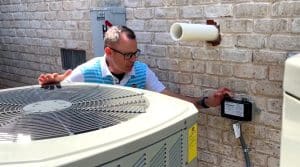 An HVAC system loses efficiency over time primarily due to mechanical wear and tear, internal sediment or dust buildup on coils, and neglected maintenance. According to Berico HVAC expert technician, Karim Gourari, “When components like the blower motor or compressor age, they require more electrical amperage to perform the same amount of work, which directly increases your energy consumption and lowers the efficiency below the original rating.”
An HVAC system loses efficiency over time primarily due to mechanical wear and tear, internal sediment or dust buildup on coils, and neglected maintenance. According to Berico HVAC expert technician, Karim Gourari, “When components like the blower motor or compressor age, they require more electrical amperage to perform the same amount of work, which directly increases your energy consumption and lowers the efficiency below the original rating.” Poor indoor air quality is usually caused by dirty air filters, contaminated or leaking ductwork, poor ventilation, excess indoor moisture, and everyday household pollutants. According to Berico’s experienced HVAC expert, Darrel Honeycutt, these issues allow dust, allergens, and moisture to build up inside the home, which can make the air unhealthy to breathe.
Poor indoor air quality is usually caused by dirty air filters, contaminated or leaking ductwork, poor ventilation, excess indoor moisture, and everyday household pollutants. According to Berico’s experienced HVAC expert, Darrel Honeycutt, these issues allow dust, allergens, and moisture to build up inside the home, which can make the air unhealthy to breathe.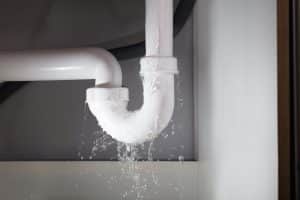 The most common bathroom plumbing problems include leaky faucets, running toilets, clogged shower or sink drains, and low water pressure. According to our skilled Berico Plumber, Adam Rhodes, “Most of these issues stem from internal component failure, such as a worn-out flapper causing a running toilet or mineral deposits inside a faucet aerator, which require immediate attention to prevent high water bills and structural water damage.”
The most common bathroom plumbing problems include leaky faucets, running toilets, clogged shower or sink drains, and low water pressure. According to our skilled Berico Plumber, Adam Rhodes, “Most of these issues stem from internal component failure, such as a worn-out flapper causing a running toilet or mineral deposits inside a faucet aerator, which require immediate attention to prevent high water bills and structural water damage.”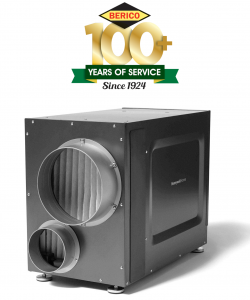 Humid conditions can make life rather uncomfortable. While there isn’t much you can do about the humidity outdoors during the middle of a Greensboro summer, you can take steps to bring down the moisture level indoors. Specifically, you can add a
Humid conditions can make life rather uncomfortable. While there isn’t much you can do about the humidity outdoors during the middle of a Greensboro summer, you can take steps to bring down the moisture level indoors. Specifically, you can add a 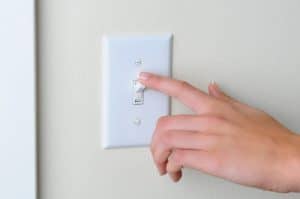 There are certain problems that can come up in your home that will grab your attention right away. A buzzing light switch is one of them. After all, light switches are simple devices that should be completely silent. If one of yours is making a buzzing noise, that issue needs to be addressed right away.
There are certain problems that can come up in your home that will grab your attention right away. A buzzing light switch is one of them. After all, light switches are simple devices that should be completely silent. If one of yours is making a buzzing noise, that issue needs to be addressed right away.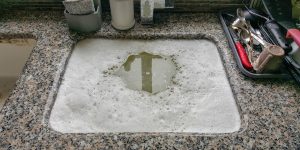 As a homeowner, you are used to small issues coming up from time to time. Fortunately, these little problems can often be fixed quickly and easily. Such is the case with a slow drain line. Often, it means there is a little clog that will be easy to clear. But what if that isn’t it? If you are having trouble with a persistently slow drain, it could actually be your sewer line that needs attention.
As a homeowner, you are used to small issues coming up from time to time. Fortunately, these little problems can often be fixed quickly and easily. Such is the case with a slow drain line. Often, it means there is a little clog that will be easy to clear. But what if that isn’t it? If you are having trouble with a persistently slow drain, it could actually be your sewer line that needs attention.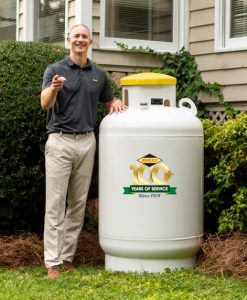 A propane regulator plays a critical role in how fuel moves from the tank into your home. When it starts to fail, the signs are often subtle at first. Pressure can fluctuate. Appliances may not perform the way they should. This guide explains how to recognize those warning signs and what steps to take if a regulator problem is suspected.
A propane regulator plays a critical role in how fuel moves from the tank into your home. When it starts to fail, the signs are often subtle at first. Pressure can fluctuate. Appliances may not perform the way they should. This guide explains how to recognize those warning signs and what steps to take if a regulator problem is suspected.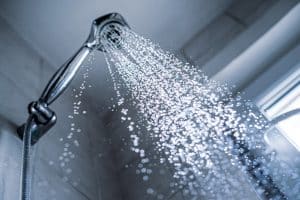
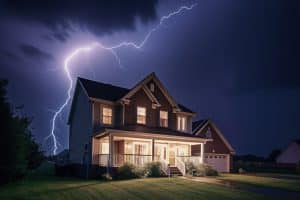 Lightning is one of the most dangerous events that Mother Nature can conjure up. While the odds of being hit by lightning are extremely low, it can do damage in other ways by starting fires and destroying equipment. Given all of the electrical equipment that is constantly working in your home, a direct lightning strike poses a significant threat.
Lightning is one of the most dangerous events that Mother Nature can conjure up. While the odds of being hit by lightning are extremely low, it can do damage in other ways by starting fires and destroying equipment. Given all of the electrical equipment that is constantly working in your home, a direct lightning strike poses a significant threat.